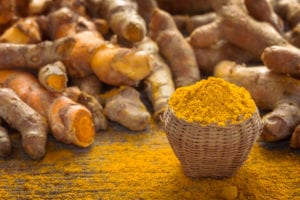Written by Greg Arnold, DC, CSCS. A new curcumin formulation containing fenugreek fiber significantly decreased stress, anxiety and fatigue and improved Quality of Life in participating subjects.
 The estimated economic toll that stress and anxiety takes in the form of medical care and lost productivity at work ranges from $53 billion 1 to as high as $100 billion 2 per year. A 2002 study stated that “disability caused by stress is just as great as the disability caused by workplace accidents or other common medical conditions such as hypertension, diabetes, and arthritis” 3.
The estimated economic toll that stress and anxiety takes in the form of medical care and lost productivity at work ranges from $53 billion 1 to as high as $100 billion 2 per year. A 2002 study stated that “disability caused by stress is just as great as the disability caused by workplace accidents or other common medical conditions such as hypertension, diabetes, and arthritis” 3.
Ways to help with stress include consuming “healthy, well-balanced meals”, exercising “on a regular basis” and getting “plenty of sleep” 4, as well as supplementing with 600 milligrams per day of Ashwaganda 5. Now research suggests that curcumin may also be helpful.
A 2016 study 6 involved 60 subjects (51 men, 9 women) aged 26 to 40 who were taking no medications but were experiencing occupational stress-related anxiety and fatigue. They received either standard curcumin (500 mg twice daily = 20 subjects), a placebo (20 subjects), or a formulated curcumin product called CGM (500 mg twice daily = 20 subjects) for 30 days. The formulated curcumin product contained curcumin with debitterised fenugreek (Trigonella foenum graecum) dietary fiber rich in galactomannans. Before and after the study, subjects completed questionnaires related to stress 7, anxiety 8, and quality of life 9.
The researchers compared standard curcumin to the formulated curcumin as “it has been well established that curcumin is poorly [absorbed]” 10 due to the low rate of curcumin passing into cells through cell membranes 11,12. As a result, altering curcumin in labs to improve absorption is common and CGM “delivers significantly high levels of all the free curcuminoids upon oral administration to Wistar rats” 13.
After 30 days, researchers noted the following:
| Placebo | Curcumin | CGM | p-value* | |
|---|---|---|---|---|
| Stress | 1.4% increase (64.52 to 65.48) | 10.5% decrease (57.86 to 51.79) | 19.2% decrease (60.95 to 49.29) | < 0.05 |
| Anxiety | 13.6% increase (21.57 to 24.52) | 27.9% decrease (25.61 to 18.48) | 42.4% decrease (23.62 to 13.62) | < 0.05 |
| Quality of Life | 4.8% decrease (61.70 to 58.78) | 10.8% increase (57.61 to 63.82) | 13.6% increase (66.14 to 75.14) | < 0.05 |
So while curcumin did improve stress, anxiety, and quality of life compared to placebo, the formulated curcumin provided even greater benefits. For the researchers, “significant reduction in perceived stress, anxiety, and fatigue leading to better quality of life was observed among the CGM group participants indicating the enhanced efficacy of bioavailable free curcuminoids.”
Source: Sudheeran, Subash Pandaran, Della Jacob, Johannah Natinga Mulakal, Gopakumar Gopinathan Nair, Abhilash Maliakel, Balu Maliakel, Ramadasan Kuttan, and I. M. Krishnakumar. “Safety, tolerance, and enhanced efficacy of a bioavailable formulation of curcumin with fenugreek dietary fiber on occupational stress: a randomized, double-blind, placebo-controlled pilot study.” Journal of clinical psychopharmacology 36, no. 3 (2016): 236-243.
© 2016 Wolters Kluwer Health, Inc. All rights reserved.
Posted November 10, 2016.
Greg Arnold is a Chiropractic Physician practicing in Hauppauge, NY. You can contact Dr. Arnold directly by emailing him at PitchingDoc@msn.com or visiting his web site at www.PitchingDoc.com.
References:
- Greenberg P. Depression in the Workplace: an Economic Perspective. New York: John Wiley and Sons; 1996.
- Ettner SL, Frank RG, Kessler RC. The impact of psychiatric disorders on labor market outcomes. ILR Review. 1997;51(1):64-81.
- Kalia M. Assessing the economic impact of stress–the modern day hidden epidemic. Metabolism. 2002;51(6 Suppl 1):49-53.
- CDC. Injury Prevention and Control: Division of Violence Prevention. https://www.cdc.gov/injury/index.html.
- Chandrasekhar K, Kapoor J, Anishetty S. A prospective, randomized double-blind, placebo-controlled study of safety and efficacy of a high-concentration full-spectrum extract of Ashwagandha root in reducing stress and anxiety in adults. Indian journal of psychological medicine. 2012;34(3):255.
- Sudheeran SP, Jacob D, Mulakal JN, et al. Safety, Tolerance, and Enhanced Efficacy of a Bioavailable Formulation of Curcumin With Fenugreek Dietary Fiber on Occupational Stress: A Randomized, Double-Blind, Placebo-Controlled Pilot Study. Journal of clinical psychopharmacology. 2016;36(3):236-243.
- Cohen S, Kamarck T, Mermelstein R. A global measure of perceived stress. Journal of health and social behavior. 1983;24(4):385-396.
- Beck AT, Epstein N, Brown G, Steer RA. An inventory for measuring clinical anxiety: psychometric properties. Journal of consulting and clinical psychology. 1988;56(6):893-897.
- Ware JE, Jr., Sherbourne CD. The MOS 36-item short-form health survey (SF-36). I. Conceptual framework and item selection. Med Care. 1992;30(6):473-483.
- Pan MH, Huang TM, Lin JK. Biotransformation of curcumin through reduction and glucuronidation in mice. Drug metabolism and disposition: the biological fate of chemicals. 1999;27(4):486-494.
- Pal A, Sung B, Bhanu Prasad BA, et al. Curcumin glucuronides: assessing the proliferative activity against human cell lines. Bioorg Med Chem. 2014;22(1):435-439.
- Sandur SK, Pandey MK, Sung B, et al. Curcumin, demethoxycurcumin, bisdemethoxycurcumin, tetrahydrocurcumin and turmerones differentially regulate anti-inflammatory and anti-proliferative responses through a ROS-independent mechanism. Carcinogenesis. 2007;28(8):1765-1773.
- Krishnakumar I, Maliakel A, Gopakumar G, Kumar D, Maliakel B, Kuttan R. Improved blood–brain-barrier permeability and tissue distribution following the oral administration of a food-grade formulation of curcumin with fenugreek fibre. Journal of functional foods. 2015;14:215-225.
